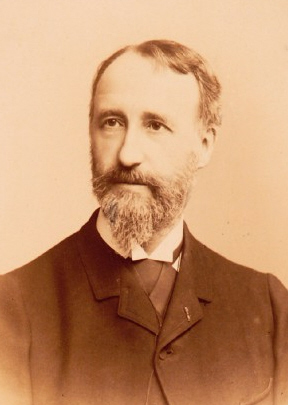Théodore Dubois
[테오도르 뒤부아]
Suite concertante pour violoncelle, piano et orchestre
1. Maestoso, sans lenteur
2. Allegro leggiero
3. Larghetto
4. Allegro
Marc Coppey, violoncelle
Orchestre Poitou-Charentes
Jean-François Heisser, piano and conductor
(Anna Mikulska - cello & Philippe Argenty - piano) and Atlantida Symphony directed by Manuel Tévar
21.06.2019, Guadalajara, Palacio Antonio de Mendoza
Théodore Dubois was born in Rosnay in Marne. He studied first under Louis Fanart (the choirmaster at Reims Cathedral) and later at the Paris Conservatoire under Ambroise Thomas. He won the Prix de Rome in 1861. In 1868, he became choirmaster at the Church of the Madeleine, and in 1871 took over from César Franck as choirmaster at the Basilica of Sainte-Clotilde. In 1877, Dubois returned to the Church of the Madeleine, succeeding Camille Saint-Saëns as organist there. From 1871 he taught at the Paris Conservatoire, where his pupils included Pierre de Bréville, Guillaume Couture, Gabrielle Ferrari, Gustave Doret, Paul Dukas, Achille Fortier, Xavier Leroux, Albéric Magnard, Édouard Risler, Guy Ropartz, Spyridon Samaras, and Florent Schmitt.
Dubois was director of the Conservatoire from 1896 (succeeding Thomas on the latter's death) to 1905, continuing his predecessor's intransigently conservative regime. The music of Auber, Halévy and especially Meyerbeer was regarded as the correct model for students, and old French music such as that of Rameau and modern music, including that of Wagner were kept rigorously out of the curriculum. Dubois was unremittingly hostile to Maurice Ravel who, when a Conservatoire student, did not conform to the faculty's anti-modernism, and in 1902 Dubois unavailingly forbade Conservatoire students to attend performances of Debussy's ground-breaking new opera, Pelléas et Mélisande. In June 1905 he was forced to bring his planned retirement forward after a public scandal caused by the faculty's blatant attempt to stop Ravel winning the Prix de Rome. Gabriel Fauré was appointed to succeed Dubois as director, with a brief from the French government to modernise the institution.
'♣ 음악 감상실 ♣ > [모음곡(suite)]' 카테고리의 다른 글
| Jacob Adolf Hägg - Piano suite in G-minor, Op.3 (1871) (0) | 2019.09.24 |
|---|---|
| Aaron Copland - Appalachian Spring (Orchestral suite) (0) | 2019.09.21 |
| Ernst von Dohnányi- Keringoszvit Waltz Suite (0) | 2019.09.14 |
| Charles O'Brien- Suite humoristique, Op 8 (0) | 2019.09.12 |
| Erkki Melartin- The Blue Pearl, Suite from the ballet Op. 160 (1928-30) (0) | 2019.07.20 |
